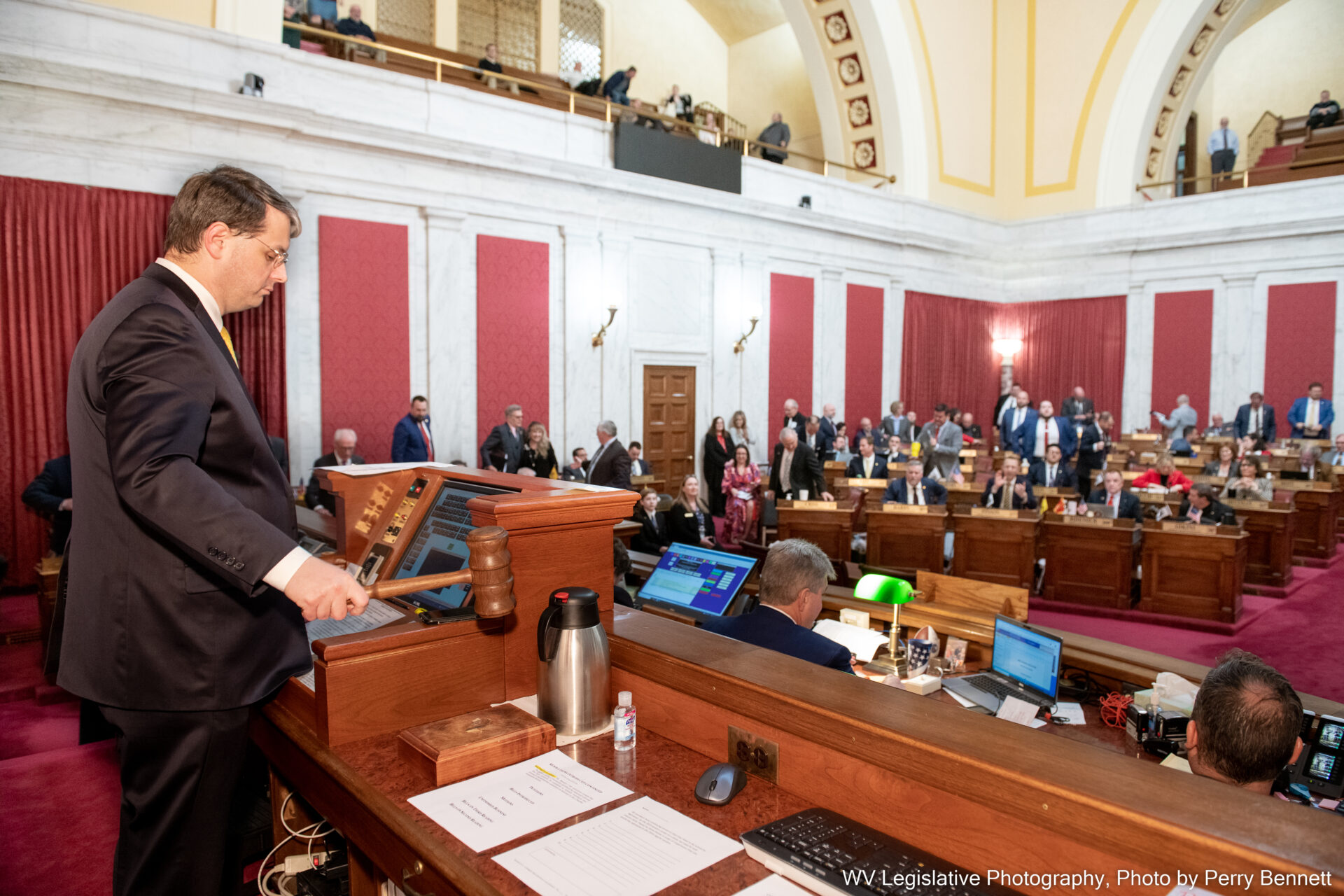Now that a near half billion-dollar federal clawback is off the table, plans to fatten a skinny state budget are ramping up.
Gov. Jim Justice announced last Friday that West Virginia will not face a clawback of $465 million in COVID-19 money from the U.S. Department of Education. The news alleviated concerns raised by state lawmakers during the final days of the legislative session in March.
Speaker of the House Roger Hanshaw, R-Clay, said leaders from the executive and legislative branches have continued to regularly meet on setting budget priorities for an expected May special session.
“Before we meet in May,” Hanshaw said. “We will have made some tentative decisions on which of the various spending proposals that we had during the regular session will actually expect to pass into law and then go into our May interim period intending to do those things.”
Hanshaw said budget priorities begin with fulfilling certain ongoing state obligations.
“Like our public defender system, for example,” Hanshaw said. “It’s one of those every year where we have to pass a supplemental appropriation that lets us continue to meet our obligations of the justice system, funding the public defenders at a level that meets constitutional expectations.
Hanshaw said the surplus revenue pool is in the $700 to $800 million range. He said the budget meetings including state health officials highlight the priority issue of restoring several million dollars in health-related Medicaid funds.
“How do we make sure we’re maximizing federal dollars?” Hanshaw said. How do we make sure we’re maximizing our matching funds? We just had to delay it by about a month and a half this year.”
Hanshaw says legislators are watching possible federal changes in childcare funding to assess state budget input.
There’s a federal U.S. Department of Labor rule,” Hanshaw said. “I believe it is working its way through the federal system right now, that will have a big impact on that. A rule that would compel funding for childcare agencies on the basis of paying on an enrollment versus attendance model. We need some finality on that from the federal government before we can be certain just exactly how much we can allocate and the manner in which we allocated.”
In his State of the State Address, Justice proposed $50 million for a West Virginia State University agricultural lab. Hanshaw said that has been a state government priority for a long time. He expects it to be addressed in the Special Session.
“We need to get the Department of Agriculture in some new facilities,” Hanshaw said. “That’s well known. For many years, we’ve worked with the commissioner and with the President of WVSU, President Cage and his team there. That’s a shared priority for everybody.”
Hanshaw also expects long term EMS viability, and pay raises for non-uniformed corrections workers to be on Justice’s special session call, likely to be during held the May 19-21 interim legislative meetings
“It makes sense that we would utilize the time that people have already allocated to be here in the Capitol,” Hanshaw said.
